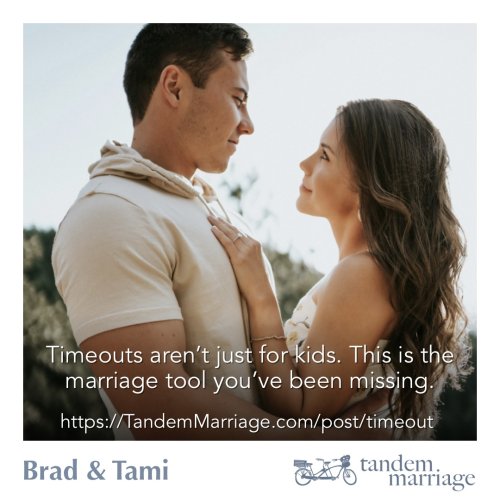I always say that "every marriage has issues, some couples deal with those issues." The implication here is that, as a married couple, you will either deal with your issues or refuse to. There are only two choices here, you either have issues and deal with them or you have issues and ignore them. So, which kind of married couple are you?
Furthermore, any individual problem that causes tension or an issue in a marriage, is a marriage problem. It is not his issue or her issue, not my issue or their issue. IT IS A MARRIAGE ISSUE.
Let's talk about this in a practical sense with a few examples. If your husband abuses alcohol or struggles with stress, those issues do not remain in a vacuum that will solely impact your husband. No, those issues will impact most relationships your husband has, and most notably, your marriage. If, on the other hand, your wife struggles with depression, or fear, or often feels overwhelmed with her obligations as a mother, this will impact her ability to connect well with both her children and her husband. While these are somewhat classic examples, the struggles in your marriage may look very different. The point is that any individual issue that a husband or wife has will certainly impact the marriage as well.
As Tami rightly says, "each spouse has a contribution to any problem in marriage." Figure out what your contribution is and you will be getting closer to a healthy and satisfying relationship. Don't rest until you understand your contribution and learn how to manage it. We all know that your spouse has a contribution as well, but for now, you need to focus on your contribution first and trust your spouse to work on theirs. For the sake of this conversation, let’s assume that we are talking about routine challenges, where nobody is in danger, like taking out the trash or leaving dishes in the sink. This would mean that one of your leaves the dishes in the sink, being inconsiderate of the other, and one of you doesn’t allow any room for grace when the other leaves dishes in the sink. You each have a contribution. You each have something you can do better or different to ease the tension between you.
”But Brad," you may be saying, what if nobody points out my spouse's contribution/mistake/problem?" To which I would reply, "Do you really think your spouse will agree with your assessment of them and instantly change?" Of course not. This is why you must work on those things which are within your own control and let your spouse work on the things within their control. They may ask you what they could do differently in the future, this is a different scenario because they are ready to hear your input and listen. Just be sure not to offer your demanding critique of them if they don't ask, and offer a kind and thoughtful request with love and grace if they do!
All of this changes when someone is in danger. If your spouse is an alcoholic, there is a safety issue for quite a few people involved and you should speak up if it is safe to do so. You may even need to consult with a trusted friend or family member to help in telling your spouse what they need to hear without putting anyone in danger.
There is something called "cognitive dissonance" which is the idea that each one of us needs to reconcile, within ourselves, the difference between what we know is right and what we actually do. For example, do you know it is wrong to tell a lie, but do so when it serves your own purpose? This is cognitive dissonance. This also means it is easier to blame struggles or issues on your spouse than it is to take ownership of your own contribution. Each one of us makes this mistake often. We have all done this. You have and so have I. You have had a misunderstanding with your spouse that causes tension, frustration, or an argument – and you said to yourself something like this: "This is THEIR issue, not my issue. Will there ever be a time when _____________ (insert your spouse's name) is not so _____________ (insert current issue)?" Allowing yourself to think this way will do more harm than good and should always be avoided.
Let me restate all of this one more time, any problem that either one of you has will always be a marriage problem. A husband and wife must be a team, working together toward common goals. They are essentially in a rowboat working together to row their boat in the same direction. If there were a hole in your boat, would it really help if you said to your spouse, "Hey, your side of the boat is sinking!" Of course not because it's your boat too!
DISCUSSION QUESTIONS:
1. In your marriage, do you have issues and ignore them, or do you deal with your issues?
2. What are some of your regular contributions to your marriage issues (the things you have control over)?
3. Being honest, have you been more concerned in the past about managing your own issues, about about your spouse's issues?
4. Does you like it when your spouse tries to manage your issues? Do you ever try to manage theirs?
---
If you have any comments or questions about this post, we would love to hear from you using our contact page here.
By Brad & Tami Miller. Contact us at brad@TandemMarriage.com. Copyright © 2019
Link to: https://tandemmarriage.com/post/struggles





